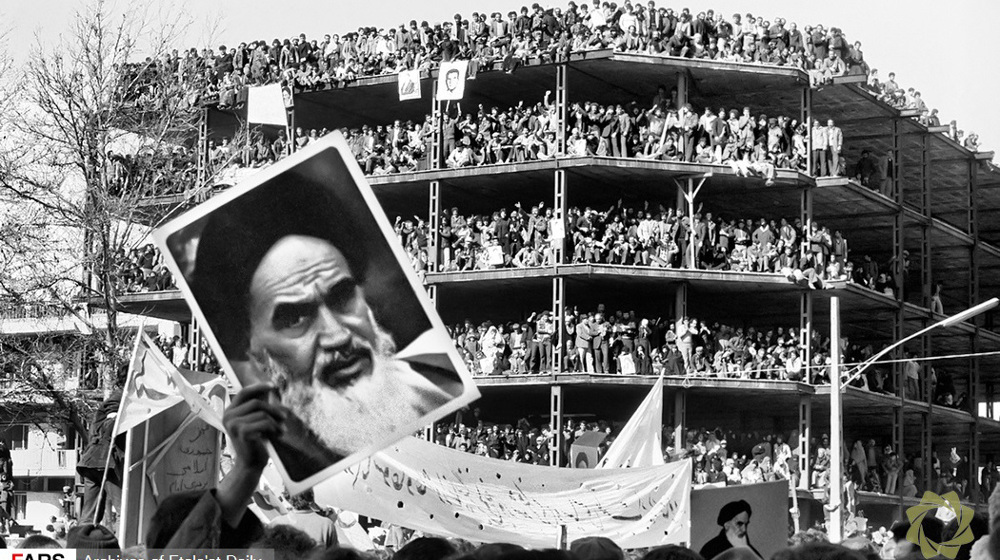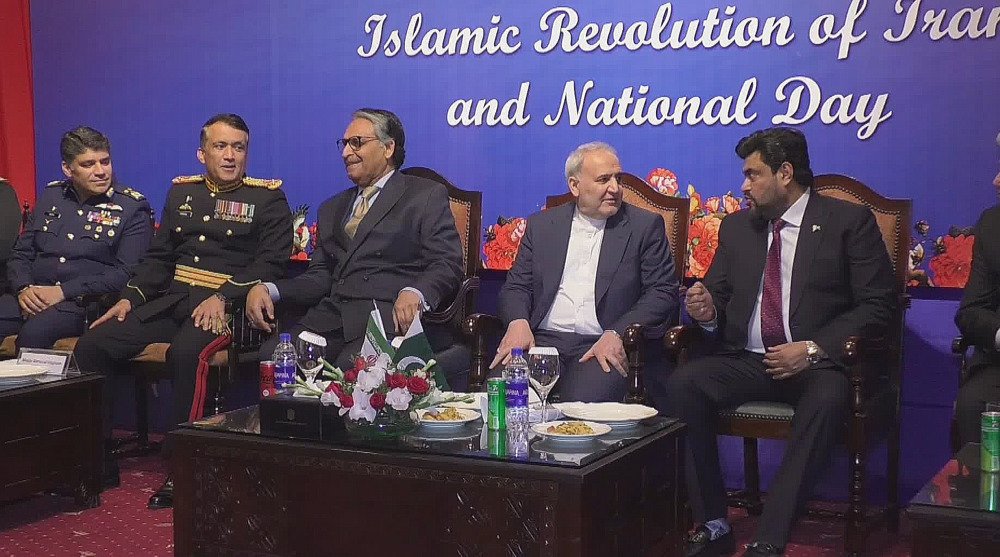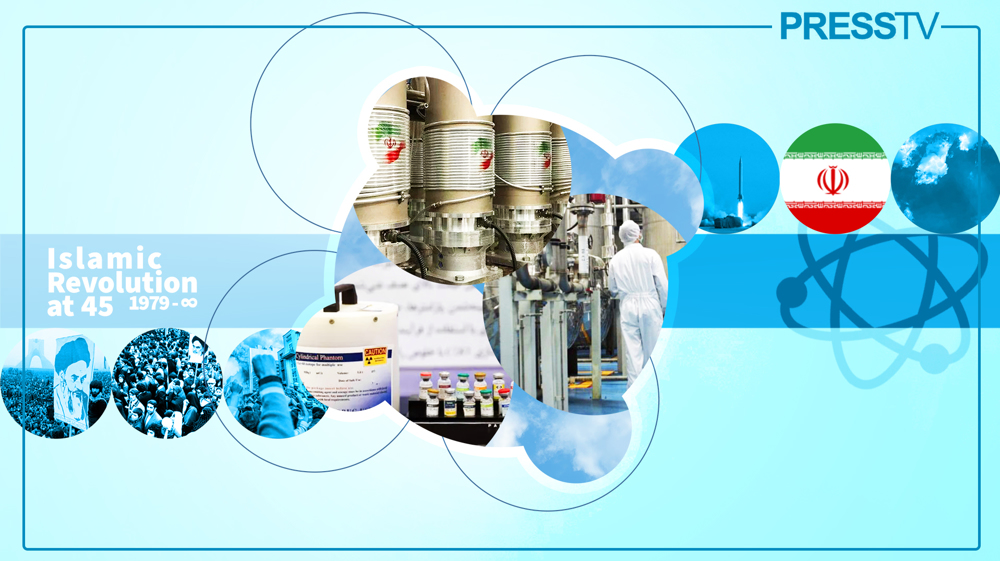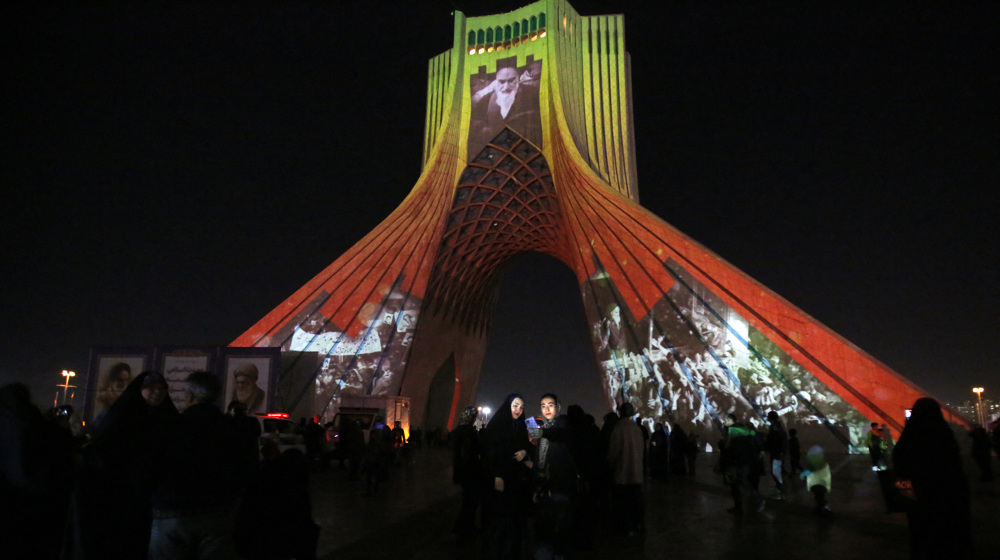Why the Muslim world needs more Islamic Revolutions
By Robert Carter
Despite what Western media claims, Iranians have benefited tremendously from the 1979 Islamic Revolution and other Muslim nations could too.
Before Imam Khomeini returned from exile to jubilant scenes in Tehran, Iran was a country plagued with many issues. In particular, the former regime of the Shah refused to distribute wealth to those most in need and deprived millions of Iranians of the chance to have a better life.
Just as is the case in many Muslim countries today, oppressive regimes, with Western support, are preventing their people from excelling. Why? So Western imperialists keep their goons in power and defend the regional interests of non-Muslim powers.
Iran's Islamic Revolution liberated Iranians from sharing the same fate as many Arab peoples face today. The following are just a few areas in which Iran extinguishes itself thanks to the revolution.
Education
Education among women and poor class families was shockingly low. According to the World Bank's report, in the age group of 15 to 95, only 36% of Iranians were literate in 1979, while the global average was 69%. Other research conducted claimed illiteracy among Iranian women may have been as low as 17% at certain points. However, following the revolution, illiteracy in Iran has been eradicated.
Not only that but Iran has even begun leading the way in the fields of science, art, poetry, sports and film making. With Iranians achieving noteworthy successes on the world stage.
Whether it is winning medals at the Olympics for wrestling or producing the first female mathematician to win a Fields Medal, Iran is producing significant talent thanks to the revolution's emphasis on education for all.
Self-reliant economy
Some critics of Iran would argue that the revolution damaged Iran's economy and isolated the Islamic Republic from the rest of the world. I can't deny that Iran has been the victim of a campaign of sanctions which produce hardships, however, the response to this challenge by Iran's revolutionary leadership was to invest in Iran's domestic abilities.
Dubbed the "resistance economy", Iran has become largely self-sufficient and is now capable of holding out against the economic terrorism which imperialist powers utilize. Many products and services Iranians produce domestically to avoid relying on foreign exports.
The most recent example of this is Iran's quick-fire work on two Covid-19 vaccines which are currently in the human trial stages. The production of their vaccine by the hands of Iran's science and medical professionals will ensure Iranians don't have to rely on vaccines from hostile nations, hence the ban on imports of British, American and Israeli equivalents.
Islamic democracy and constitution
Before 1979, Iranians were ruled by the dictatorial monarch, Mohammad Reza Pahlavi, who was installed as Shah in 1953 when the British and Americans backed a coup d'état which saw the overthrow of the democratically elected Prime Minister Mohammad Mosaddegh.
The Islamic Revolution returned democracy to Iranians and even allowed the masses to vote on the future direction of their nation in a referendum on turning the nation into the Islamic Republic or not. The people overwhelmingly voted in favor of an Islamic Republic; approved by 98.2% of eligible citizens, according to official results.
What followed next was a constitution which secured the rights of all Iranian citizens on paper, including religious freedoms for all and the right of vote for women - two basic principles the former regime failed to enforce.
Now Iranians can vote for their government, president and even their religious representatives. All thanks to the 1979 revolution.
Domestic defense
Iran is currently ranked as one of the strongest military forces in the world with Forbes ranking the Islamic Republic in the top 4 of their top 10 list of strongest Middle Eastern military forces in 2019. Iran produces everything from its tanks, vehicles and defensive ballistic missiles. They have a navy which includes Iranian built ships, boats and even submarines.
The revolution gave Iranians their freedom, integrity and democracy. Now it produces the elements needed for the protection of its people. Iran's military, particularly the IRGC, has been accredited with defeating both Daesh and Al-Qaeda across the region including Iraq and Syria. Not a bad record given that the Islamic Republic has never started a war since its inception!
Conclusion
The list could go on but my point has been made. So many of Iran's neighbors are in bad shape and the reason for this stems from the fact that they are under the wing of non-Muslim imperialist powers which don't have the region's best interests at heart.
Poverty, corruption and oppression are rife in the Muslim world. Particularly in the Arabian Peninsula, an area which lacks democracy, human rights and security despite the fact the US and Britain are close allies.
When the oil runs out, how long will the Western-backed regimes in the Arab world last? That is a question which Iran doesn't have to worry about because, thanks to the Islamic Revolution, Iran is self-sufficient, well defended and free.
The views expressed in this article do not necessarily reflect those of Press TV.
Robert Carter is a journalist and producer at Press TV's London office, covering news from across the globe but with a special interest in the Muslim world. Robert has traveled to various countries for Press TV, interviewing senior diplomats and politicians, attending historic events whilst also discovering new exciting stories along the way.
More pro-Gaza rallies held across Yemen
'Hunger is everywhere in Gaza': UN food agency
Iran dismisses Arab League accusations, says wants stability in Syria
Syria's HTS militants seek ‘peace’ with Israel
VIDEO | Israel violations of ceasefire
Hamas: Israel’s raid on Kamal Adwan Hospital ‘war crime’
VIDEO | TELECOM 2024 brings together ICT firms in Iran
South Korea’s parliament impeaches acting President Han Duck-soo










 This makes it easy to access the Press TV website
This makes it easy to access the Press TV website